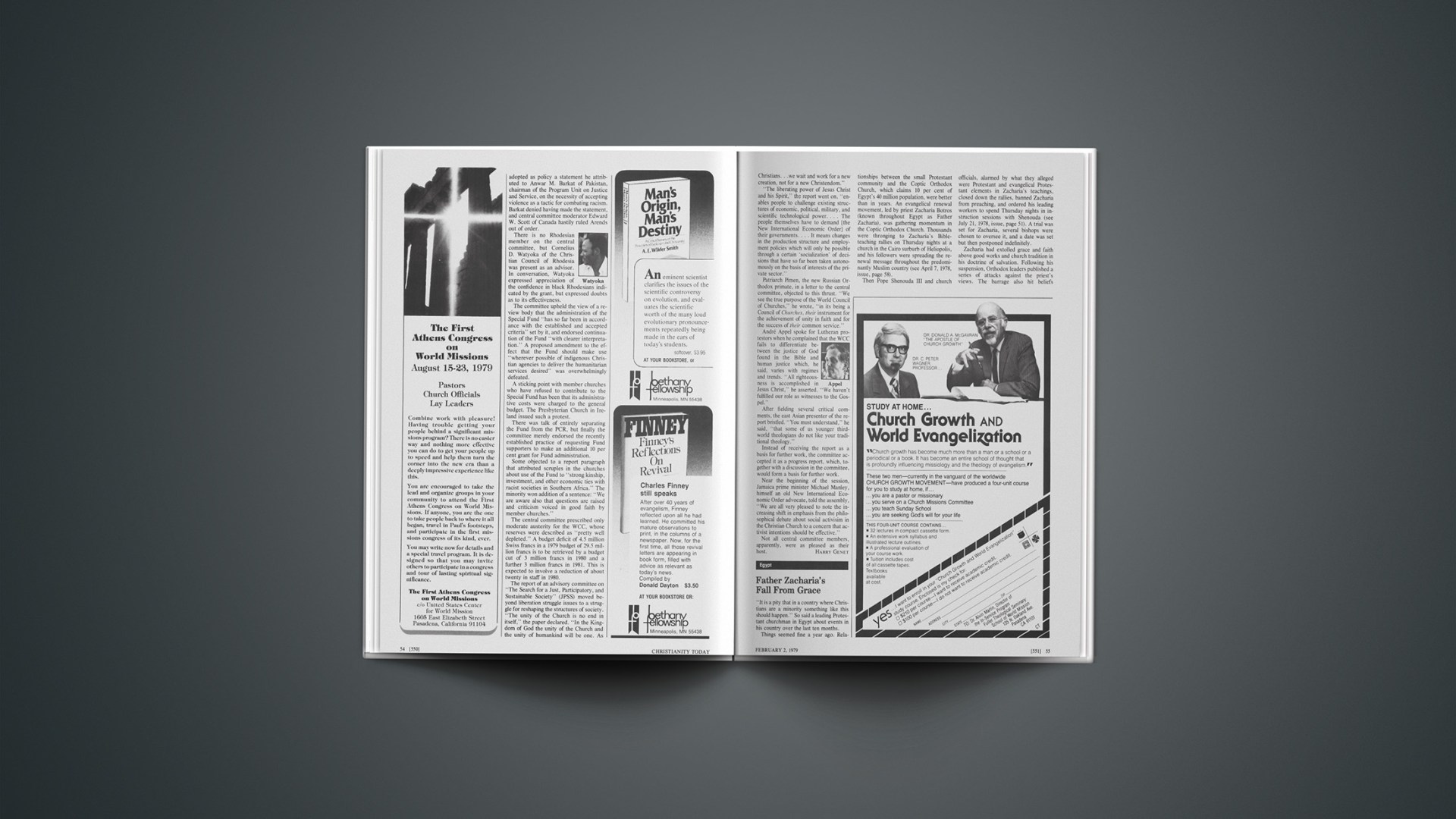“It is a pity that in a country where Christians are a minority something like this should happen.” So said a leading Protestant churchman in Egypt about events in his country over the last ten months.
Things seemed fine a year ago. Relationships between the small Protestant community and the Coptic Orthodox Church, which claims 10 per cent of Egypt’s 40 million population, were better than in years. An evangelical renewal movement, led by priest Zacharia Botros (known throughout Egypt as Father Zacharia), was gathering momentum in the Coptic Orthodox Church. Thousands were thronging to Zacharia’s Bible-teaching rallies on Thursday nights at a church in the Cairo surburb of Heliopolis, and his followers were spreading the renewal message throughout the predominantly Muslim country (see April 7, 1978, issue, page 58).
Then Pope Shenouda III and church officials, alarmed by what they alleged were Protestant and evangelical Protestant elements in Zacharia’s teachings, closed down the rallies, banned Zacharia from preaching, and ordered his leading workers to spend Thursday nights in instruction sessions with Shenouda (see July 21, 1978, issue, page 51). A trial was set for Zacharia, several bishops were chosen to oversee it, and a date was set but then postponed indefinitely.
Zacharia had extolled grace and faith above good works and church tradition in his doctrine of salvation. Following his suspension, Orthodox leaders published a series of attacks against the priest’s views. The barrage also hit beliefs cherished by the Protestants, who reacted with a reaffirmation of their faith. So far, Protestant leaders “have been able to restrain themselves from any explicit attack upon Orthodox teaching,” says a source.
In an apparent effort to improve his situation, Zacharia recently published a booklet titled, “Orthodoxy Is My Denomination.” In it, he states that the Coptic Orthodox Church has kept the doctrines of the apostles and early church fathers. He assigns baptism a role in salvation, upholds the seven sacraments of the church as necessary means of grace, and virtually recants the teaching of justification by faith, according to a Protestant leader who has read the book.
Despite Zacharia’s seeming penance, he has not been reinstated by Shenouda, and there are still uncertainties about whether he must face a trial.










